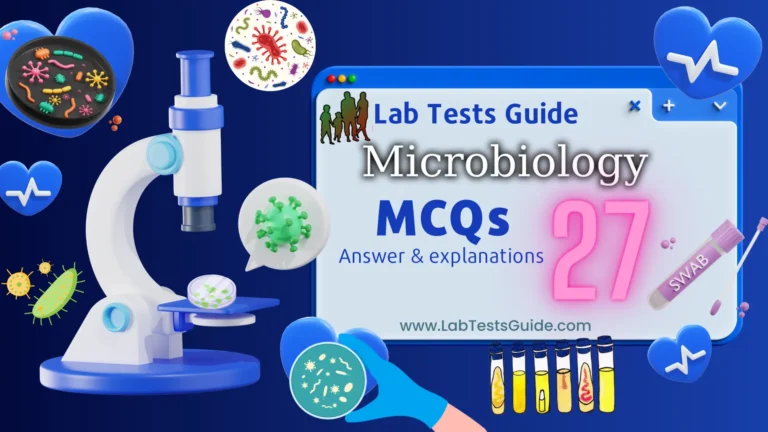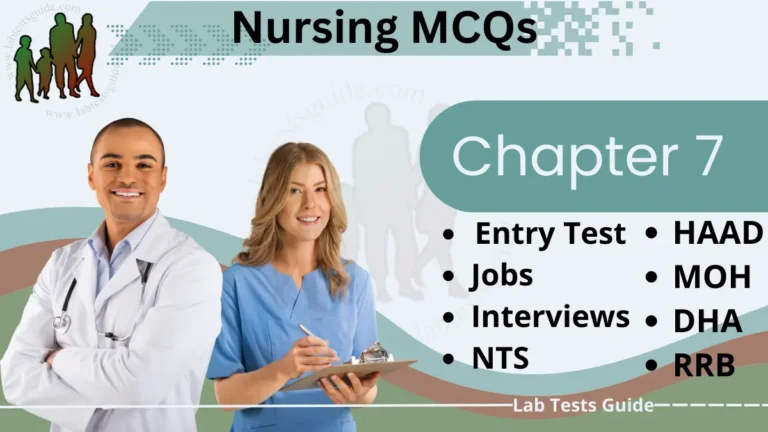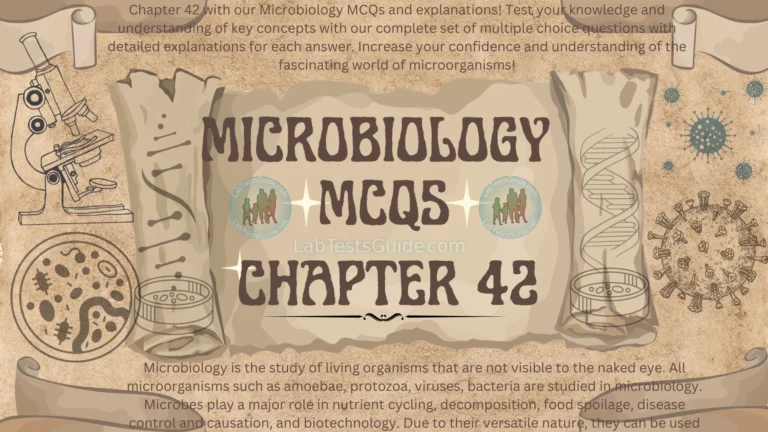Improve your knowledge in Laboratory, Blood Bank, Doctors, Nurses and Medical Students with our comprehensive collection of 5000 Plus Hematology MCQs (Multiple Choice Questions} .Whether you’re a medical professional, student, or someone interested in the field, these thought-provoking questions will test your understanding and help you grasp essential concepts.

MCQs are popular because they are easy to grade and can assess a large number of students or respondents quickly. They can also measure a wide range of knowledge or skills and can be designed to test recall, understanding, application, analysis, evaluation, or creation levels of thinking. MCQs can be used in various fields such as science, mathematics, social studies, language arts, and other disciplines.
Hematology is the branch of medicine that focuses on the study, diagnosis, treatment, and prevention of diseases related to blood and its components. It encompasses a wide array of conditions, ranging from anemia to blood cancers, and plays a crucial role in maintaining overall health and wellbeing.
| Hematology MCQs Chapter 1 | Mock Test |
| Hematology MCQs Chapter 2 | Mock Test |
| Hematology MCQs Chapter 3 | Mock Test |
| Hematology MCQs Chapter 4 | Mock Test |
| Hematology MCQs Chapter 5 | Mock Test |
| Hematology MCQs Chapter 6 | Mock Test |
| Hematology MCQs Chapter 7 | Mock Test |
| Hematology MCQs Chapter 8 | Mock Test |
| Hematology MCQs Chapter 9 | Mock Test |
| Hematology MCQs Chapter 10 | Mock Test |
Key Components of Hematology:
Red Blood Cells (RBCs): These cells, also known as erythrocytes, are responsible for carrying oxygen from the lungs to various tissues and organs throughout the body. An abnormal count or structure of RBCs can lead to conditions like anemia or polycythemia.
White Blood Cells (WBCs): WBCs, or leukocytes, are essential for the immune system, defending the body against infections and foreign invaders. Various types of white blood cells exist, each with specific functions in combating pathogens and maintaining immune function.
Platelets: These small cell fragments play a crucial role in blood clotting (coagulation) by forming clots to prevent excessive bleeding when blood vessels are damaged.
Common Hematologic Conditions:
Anemia: This condition occurs when there’s a deficiency in the number of RBCs or hemoglobin, resulting in reduced oxygen-carrying capacity in the blood. Causes of anemia can vary, including nutritional deficiencies, chronic diseases, or genetic factors.
Leukemia: Leukemia is a type of cancer that affects the blood-forming tissues, leading to an abnormal increase in immature white blood cells. There are different types of leukemia, categorized based on the specific type of white blood cell affected and the disease progression.
Hemophilia: A genetic disorder characterized by impaired blood clotting due to a deficiency in specific clotting factors or proteins. This condition can lead to prolonged bleeding or difficulty in clot formation after an injury.
Thrombocytopenia: This condition occurs when there’s a lower than normal number of platelets in the blood, which can result in an increased risk of bleeding or bruising.
Diagnostic Tools in Hematology:
Complete Blood Count (CBC): This test measures the number of blood cells (RBCs, WBCs, and platelets) in a sample of blood and helps in diagnosing various blood-related conditions.
Bone Marrow Aspiration and Biopsy: These procedures involve the extraction and examination of bone marrow cells to evaluate blood cell production, identify abnormalities, and diagnose certain blood disorders or cancers.
Understanding hematology is crucial for diagnosing and managing a wide range of conditions that affect the blood and its components. Regular check-ups, diagnostic tests, and advancements in treatment options continue to improve patient outcomes in the field of hematology.
Possible References Used







